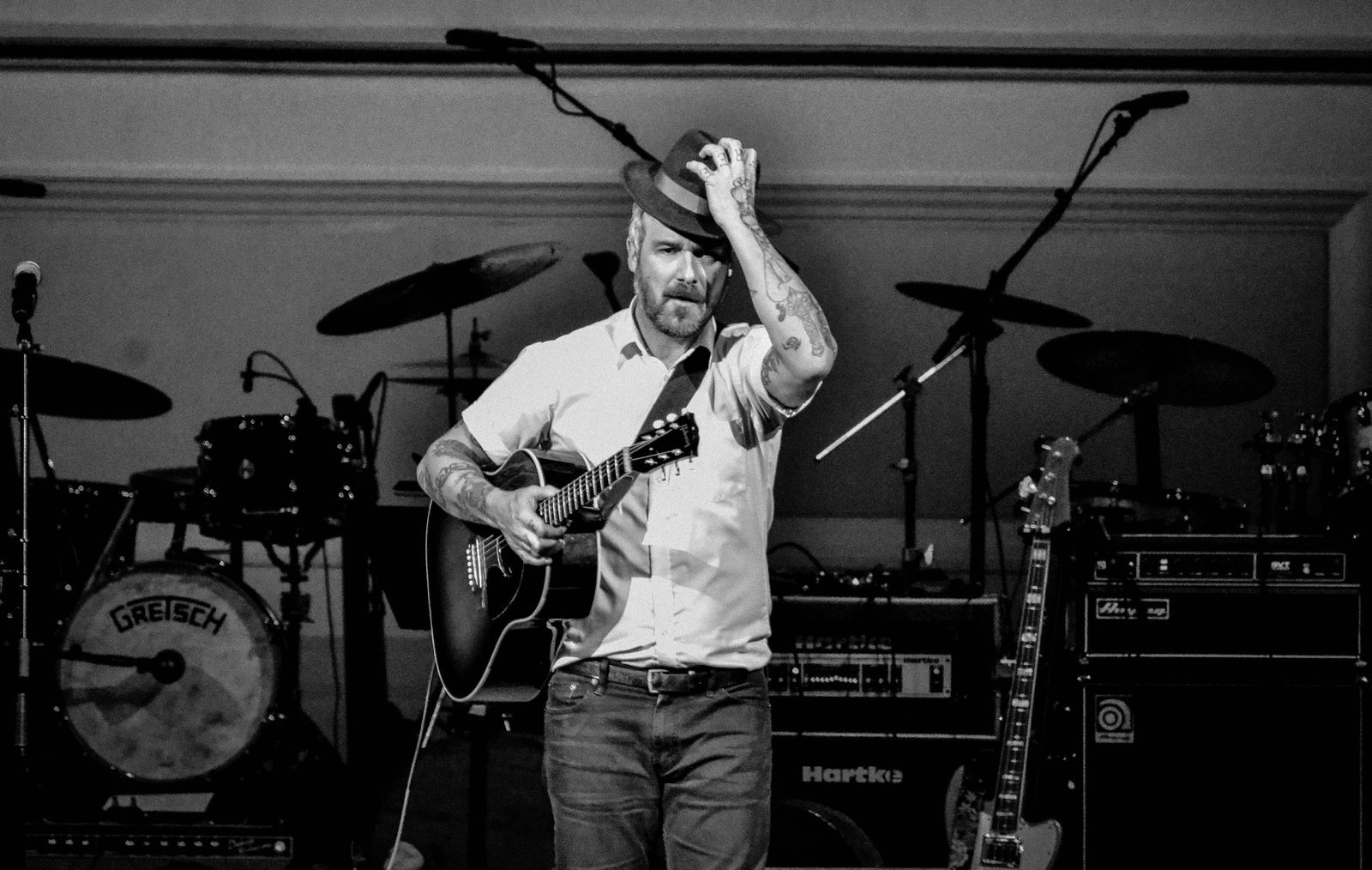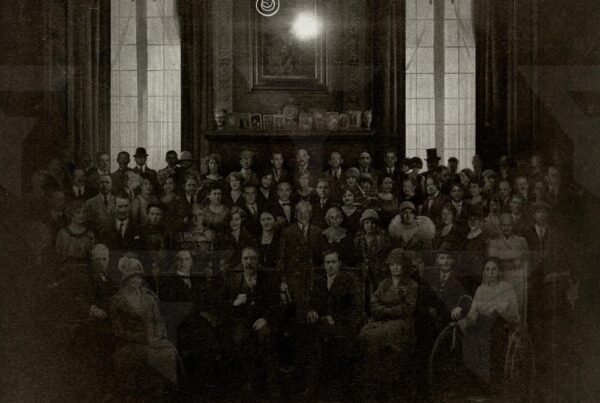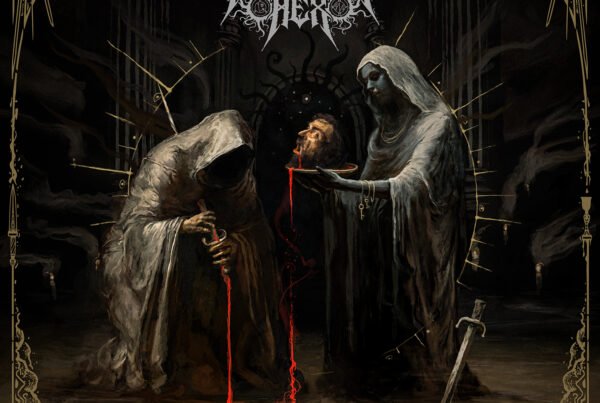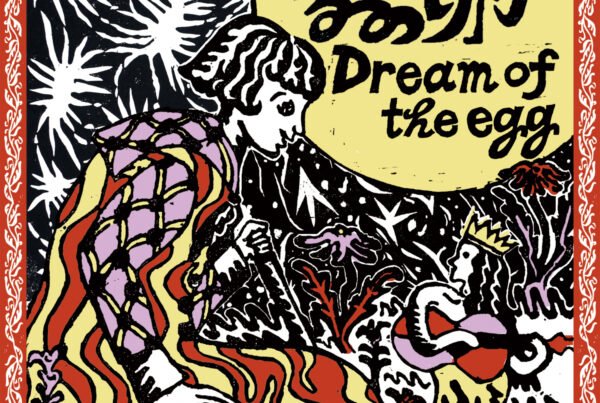For many folks who reside in rural areas, there is a sense of pride through labor that deserves its own art. Of course, there is a long history of pastoral art, literature, and folk music to draw influence and appreciation from, but in modern times this thematic territory is most loudly represented by modern country, the radio and fair circuit kind of music that ironically is produced and performed by wealthy people in big cities, out of touch with anything but the most basic imagery and stereotypes that seem ‘country.’
It sells us trucks and a lifestyle compatible with red-state talking points. It is cynical and dehumanizing in its tropes, seeking to drive and reinforce that rural, working people are pro-beer and anti-intellectual crusaders of a false narrative traditionalism, an imagined shared history that minimizes class struggle and labor movements that have been instrumental in our global progress. Fortunately, there are artists like Lee County, Iowa’s William Elliot Whitmore, whose embodiment of farm life, blue collar struggle, and down-home aesthetics offer a more accurate portrayal of Midwestern life on his latest album Silently, The Mind Breaks.
Whitmore released his first solo album in 2003 after moving to Iowa City, playing in punk bands, and touring as an opening act and roadie for the hardcore band Ten Grand. He’s known widely as a solo artist, sitting behind a kick drum playing an acoustic guitar or banjo while singing. Whitmore blends modern Americana with punk’s DIY urgency and ethos and traditional folk music inspired by field recordings and songs from the 1920’s – 1940’s.
My experience with William Elliot Whitmore has been largely informed by his earlier work and live shows up until around 2013 or so. Though we live a couple hours’ drive away from each other, his shows in my hometown area are deeply embedded in my soul, pivotal moments of revelry and a building class consciousness that transcended scenes and gatekeeping. Friends from all walks of life would convene and sing along between PBRs and shots of Jameson, reuniting and connecting in electric night air.
Admittedly, when he added a full band to his sound with 2015’s Radium Death, I fell out of touch with his music. As if through collaboration he had betrayed these core memories. This was, of course, a mistake on my part as evidenced by how satisfying Silently, The Mind Breaks feels to listen to, immediately recalling everything I love about his brand of folk. Opener “Be Still” starts off with the telltale strum of a banjo and a gentle kick drum leading to Whitmore’s greatest asset, his voice. This man sings with a gravitas indictive of the very best blues and folk singers, touched by the weariness of the world, clear enough with a bit of country road gravel, and delivered like a Pentecostal preacher sermonizing on death and redemption.
‘Be still my heart, be still my mind/I just need a moment of peace/my heart is heavy like an anvil, sometimes/ my head’s like a swarm of bees,’ he sings. This line is typical for William Elliot Whitmore, a near universally relatable topic adorned with the imagery of the working man and nature. We could all use peace and clarity in moments of darkness, and “Be Still” is an uplifting reminder that clouds pass by even if there is no guarantee of that peace.
This quiet acceptance of life’s struggles and self-preservation within them is one of the main themes of Silently, The Mind Breaks. Whitmore’s voice has smoothed over the years as well as his songwriting. Where once the ravages of whiskey and cigarettes accompanied protest anthems like “Mutiny” or crowd favorites like “Diggin’ My Grave”, now we find a more mature approach to life, fatherhood, and clear-eyed evenings. His overall sound hasn’t changed much from his earlier days, but he is a little less angsty.
“Darkness Comes’ has to be one of the best songs William Elliot Whitmore has ever written, narrating scenes of death, loss, and memory over stummed guitar and pedal steels with restrained hopefulness. The refrain of ‘I hope you do better than me,’ offers the kind of guidance and resolve that comes with age. It is a beautiful testament to time and change in all of its inevitabilities.
Elsewhere on the album, Whitmore seeks to temper death’s shadow by connecting with those around him. “I Can Relate” and “Adaptation and Survival” offer heartfelt odes to how change binds humanity while “Dance With Me” gives us a bluesy call to celebrate each other in the face of anxieties and impermanence.
Lest we think existential dread and lamentations are all we have, Whitmore’s playful side hangs around in his songs and lyricism. Lead single “Break Even” and “Bunker Built For Two” are whimsical takes on financial strain and impeding apocalyptic fantasies. “What For” is another contender for my favorite song on this album with spritely banjo and descriptions of humanity’s little idiosyncrasies like a Bible in the drawer in a flophouse nightstand or a woman’s number on a truck stop bathroom stall. I don’t know what they are there for either, but it sure makes a fella think.
Silently, The Mind Breaks gives listeners a lot to think about in plain language and straightforward musicianship. William Elliot Whitmore has never been one for complications, even any backing musicians on this album refrain from overcomplicating the message. His connection to the working people around him, his home (a 150 acre farm in a county of less than 35,000 residents), and how to live fully with death around the corner are the cornerstones of his work. These are songs for campfire nights when the drinking and thinking get equally heavy, and all you can do is smile at the rising smoke into the starry night, content in the knowledge that there are no real answers to life’s big questions. Only the passing of music and time shared with loved ones can come close.






